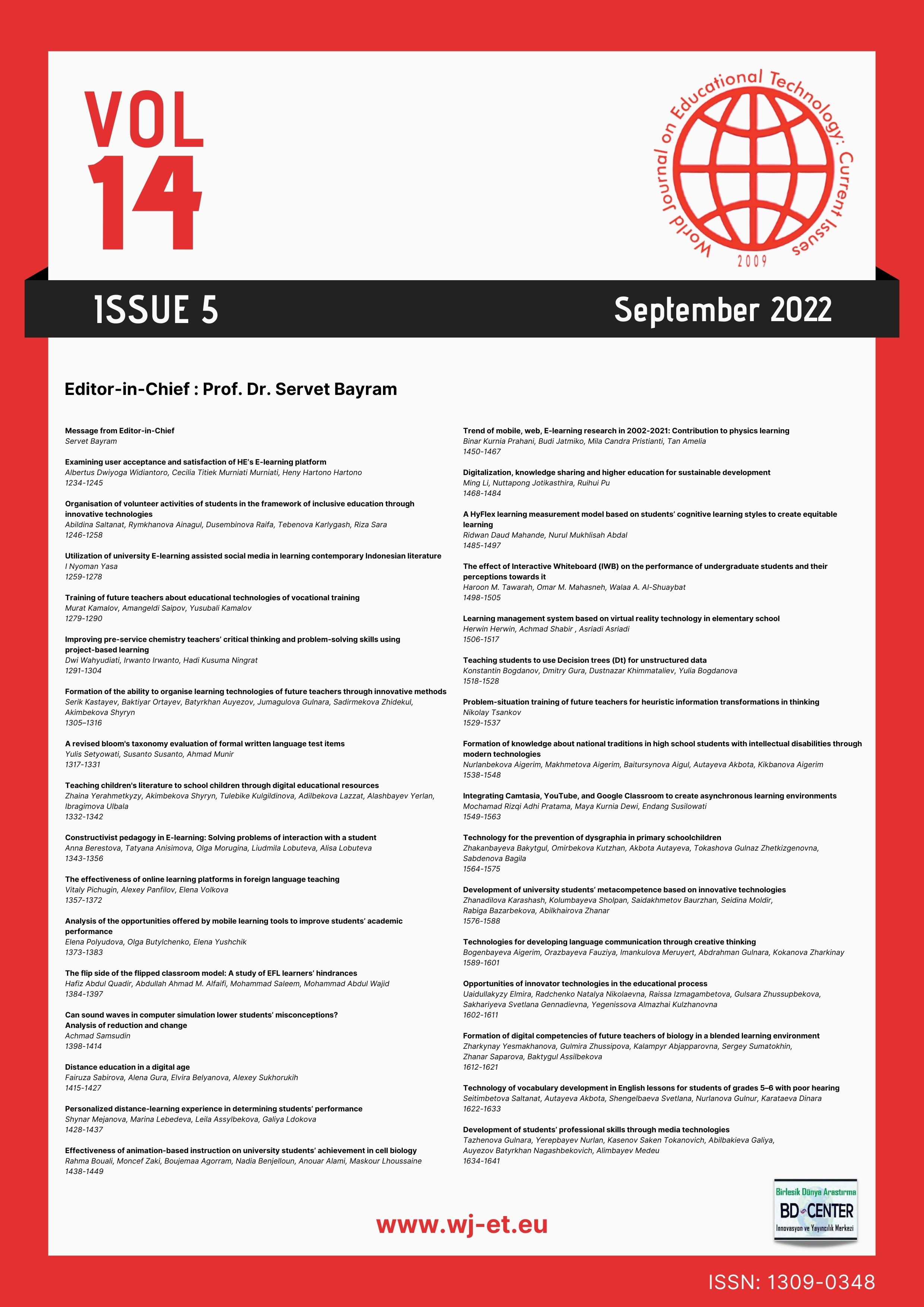Distance education in a digital age
Main Article Content
Abstract
This paper aims to review the present state of digital distance education, assess the problems associated with transitioning to the online space, and determine the priorities of online education. The study draws on the analysis of surveys, monitoring studies, and statistical information from state services. It examines the technical capabilities of educational institutions, the information technology skills of instructors and students, and their motivation. On top of that, it identifies the main problems encountered during the implementation of digital technologies in the education process while paying special attention to the role of online education during the COVID-19 pandemic. Using a psychological portrait of a modern young student, the authors provide some recommendations for the learning content to increase the interactivity of the learning process and improve students’ motivation. The article ends with outlining key areas for digital learning development that would improve the overall effectiveness of the education system transformation.
Keywords: Digitalization, distance learning, Generation Z, information environment, Internet technologies
Downloads
Article Details

This work is licensed under a Creative Commons Attribution 4.0 International License.
World Journal on Educational Technology: Current Issues is an Open Access Journal. The copyright holder is the author/s. Licensee Birlesik Dunya Yenilik Arastirma ve Yayincilik Merkezi, North Nicosia, Cyprus. All articles can be downloaded free of charge. Articles published in the Journal are Open-Access articles distributed under CC-BY license [Attribution 4.0 International (CC BY 4.0)].
Birlesik Dunya Yenilik Arastirma ve Yayincilik Merkezi (BD-Center)is a gold open-access publisher. At the point of publication, all articles from our portfolio of journals are immediately and permanently accessible online free of charge. BD-Center articles are published under the CC-BY license [Attribution 4.0 International (CC BY 4.0)], which permits unrestricted use, distribution, and reproduction in any medium, provided the original authors and the source are credited.
